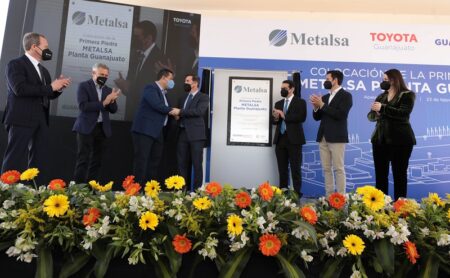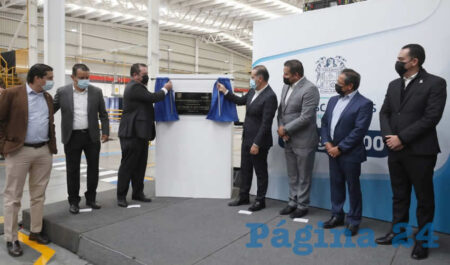Mexico can be a benchmark in the aerospace industry
MEXICO – The Mexican aerospace sector is losing around US$3 billion due to the costs generated by the importation of aeroparts; in addition, it could compete with world leaders in this industry, such as China, Turkey and Japan, by generating an integrated chain of raw material suppliers.
Sixty percent of the cost structure of aeronautical manufacturing companies is allocated to the purchase of raw materials, since purchases are made on an individual basis.
“In Turkey it takes them approximately 36 hours to make a quotation because they have a developed supply chain that serves them to lower costs and reduce response time. Mexican companies must unite to compete not among themselves, but as a country; competitive nations have already understood this,” said Manuel Mancera, CEO of SpeQtrum Aerospace, a leading aerospace manufacturing company in Guanajuato.
The aeronautical sector is characterized by a highly complex production process, with a vertical structure dominated by original equipment manufacturers (OEMs), which develop the design of the final product and delegate the manufacture of the modules for the rest of the production process to suppliers. For example, Boeing and Airbus.
According to the Ministry of Economy, global outsourcing allows OEMs to save between 20% and 30% of their production costs. These supplier companies are the most critical component of the value chain and face stringent barriers to entry, including high costs related to technological requirements, training and certifications.
In Guanajuato, companies in the industry are segmented into the Bajío Aerospace Cluster that seek to support each other to be competitive as a group.
“Our intention is to create a synergy of local and regional capabilities. We have to promote the sector and it is very important to achieve a well-integrated supply chain that generates alliances. Then we will be able to take it to the country level because we have many capabilities, so as entrepreneurs we have to work together,” stated Cluster president Oscar Rodriguez Yanez.
Those involved in the sector consider the need to stop depending on raw materials from the United States and form an aerospace ecosystem that allows them to offer special processes and more complete quotation packages.
“We need to connect through the Mexican Federation of the Aerospace Industry (FEMIA) and the Clusters, to buy raw material or the machines required to expand, and to make business plans,” added Manuel Mancera of SpeQtrum Aerospace.

SOURCE: Mexico now










